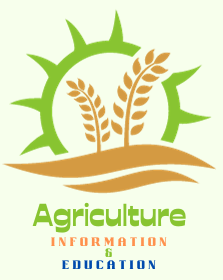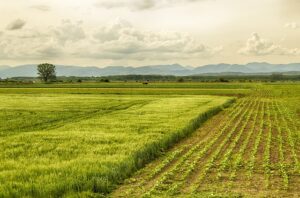Crop production involves a combination of biological, ecological, and agronomic principles to cultivate and harvest crops efficiently. Several scientific principles govern crop production, ensuring optimal growth, yield, and sustainability. Here are some key scientific principles involved in crop production:
Photosynthesis:
- Photosynthesis is the foundational process through which plants harness sunlight to synthesize carbohydrates, the primary source of energy for plant growth. The efficiency of photosynthesis is influenced by factors such as light intensity, carbon dioxide levels, and temperature. Understanding and optimizing these factors are crucial for enhancing crop productivity.
Plant Physiology:
- Plant physiology delves into the internal mechanisms governing plant growth. This includes the study of plant nutrition, hormonal regulation, and physiological processes like transpiration, respiration, and nutrient uptake. A profound understanding of plant physiology aids in implementing practices that promote optimal crop development.
Soil Science:
- Soil science is a fundamental aspect of crop production, encompassing the study of soil properties, fertility, structure, and composition. Soil testing is essential to determine nutrient levels, pH, and other factors, guiding farmers in making informed decisions about fertilization, soil amendments, and sustainable soil management practices.
Genetics and Plant Breeding:
- Genetics plays a pivotal role in developing crop varieties with desirable traits. Plant breeding involves manipulating plant genetics to create new varieties that exhibit characteristics such as high yield, disease resistance, and resilience to environmental stress. Advances in molecular biology have accelerated the breeding process, contributing to the development of genetically modified crops.
Agronomy:
- Agronomy, the science of soil management and crop production, integrates various practices such as crop rotation, tillage, irrigation, and pest management. Understanding the complex interactions between crops, soil, and climate is crucial for making informed decisions in agronomy, leading to optimized yield and sustainable farming practices.
Water Management:
- Efficient water management is imperative for successful crop production. Tailoring irrigation practices to specific crops, soil types, and climates ensures optimal water use efficiency. Technologies like drip irrigation and soil moisture sensors contribute to judicious water use, mitigating water scarcity challenges.
Integrated Pest Management (IPM):
- IPM involves a holistic approach to pest control, incorporating strategies like biological control, crop rotation, and targeted pesticide applications. By minimizing reliance on chemical interventions, IPM promotes ecological balance and reduces the environmental impact of pest management practices.
Climate Science:
- Understanding climate patterns and their impact on crops is essential for planning planting and harvesting schedules. Climate science provides insights into anticipated weather conditions, helping farmers make adaptive decisions to mitigate risks associated with extreme weather events, such as droughts or floods.
Precision Agriculture:
- Precision agriculture leverages technology, including GPS, sensors, and data analytics, to make precise decisions regarding resource allocation. This approach enhances efficiency in planting, fertilizing, and harvesting, leading to improved yields and reduced environmental footprint.
Sustainable Agriculture:
Sustainable agriculture principles prioritize practices that maintain soil health, conserve resources, and minimize environmental impact. This includes adopting organic farming methods, agroforestry, and cover cropping to enhance long-term productivity without compromising natural resources.
By integrating these scientific principles, farmers can make informed decisions, optimize resource use, and foster the overall productivity and sustainability of crop production systems. The continuous evolution of agricultural science and technology plays a crucial role in addressing global food security challenges and promoting environmentally responsible farming practices.


Very good sir
Good explanation